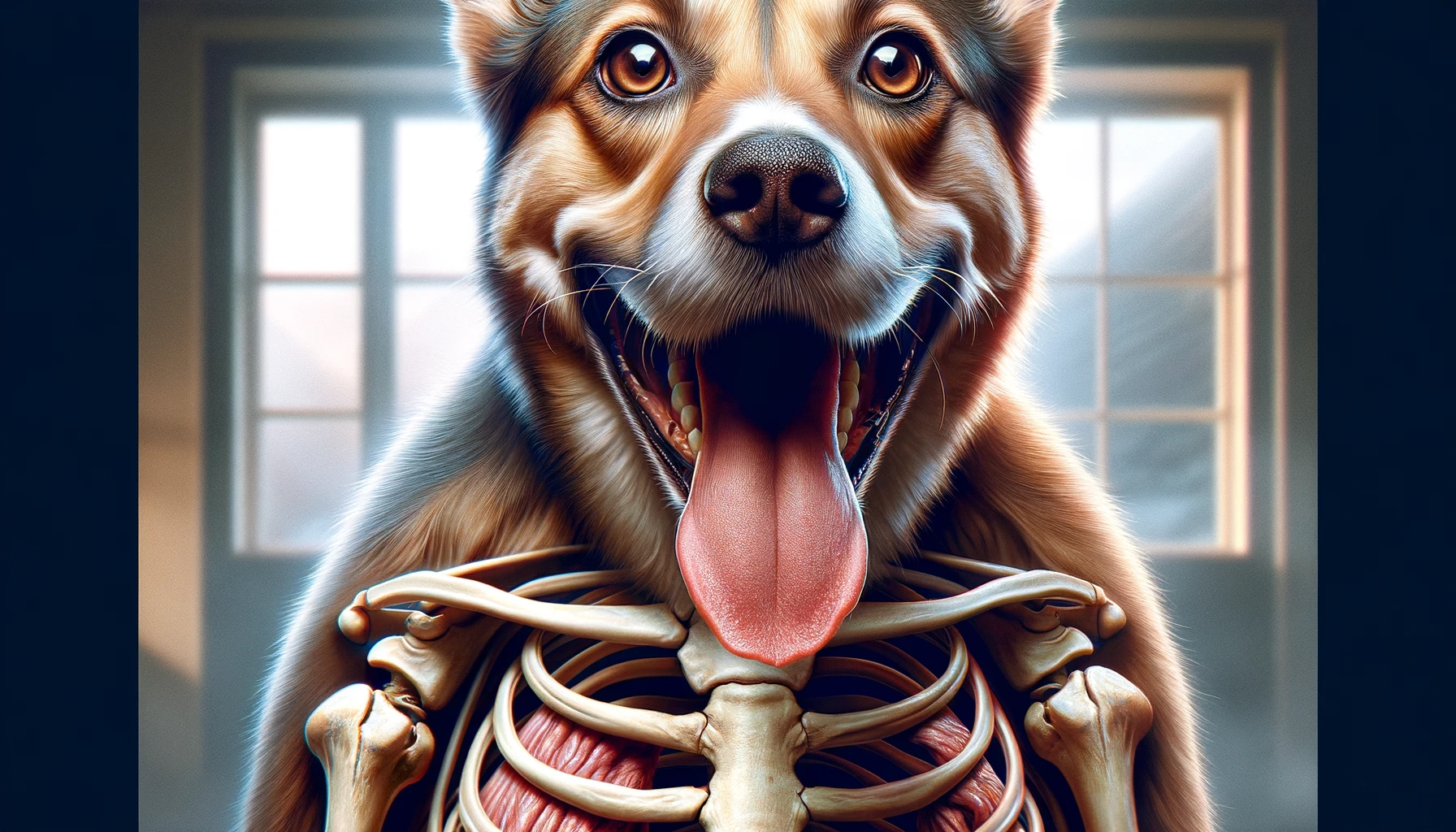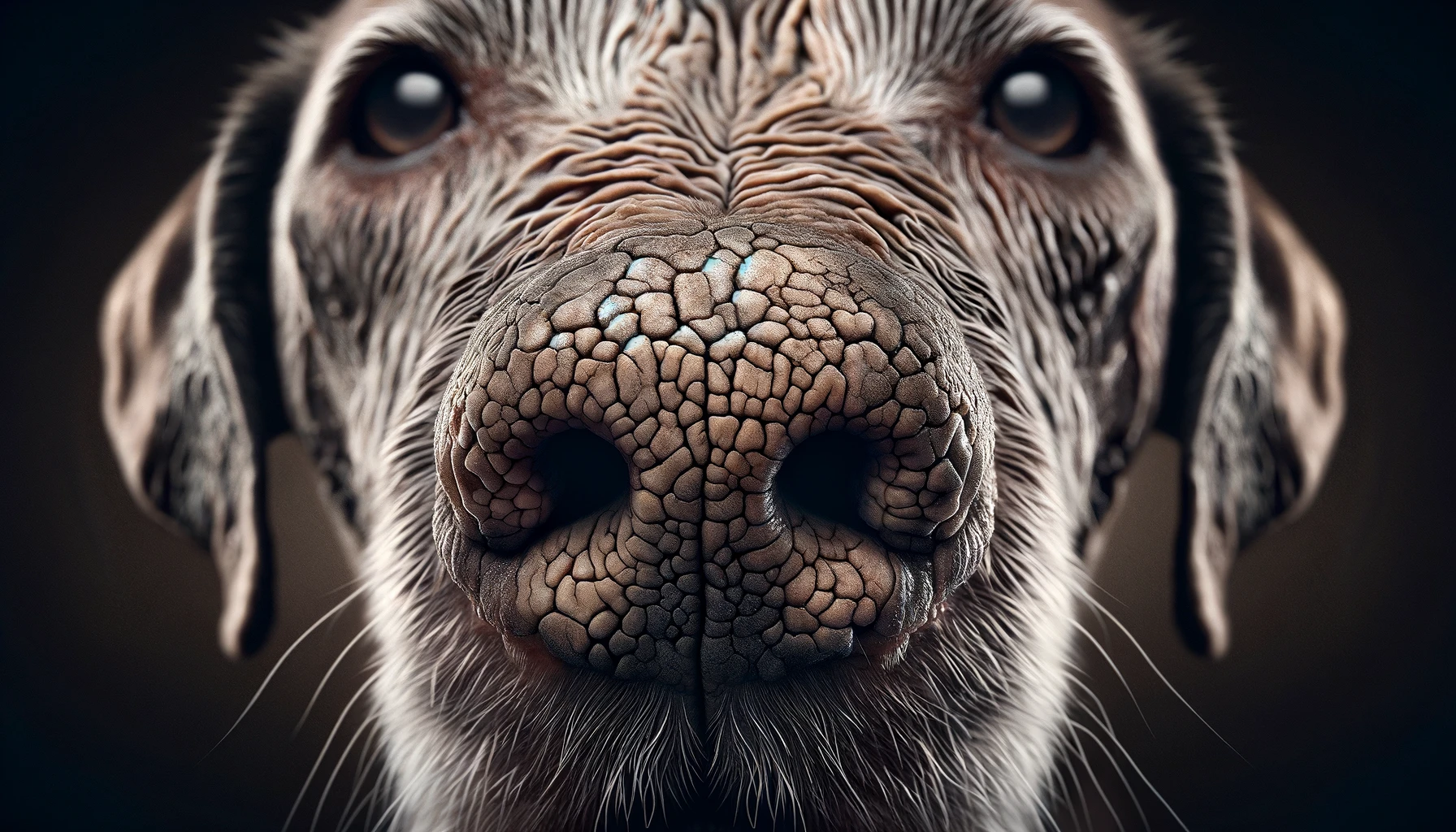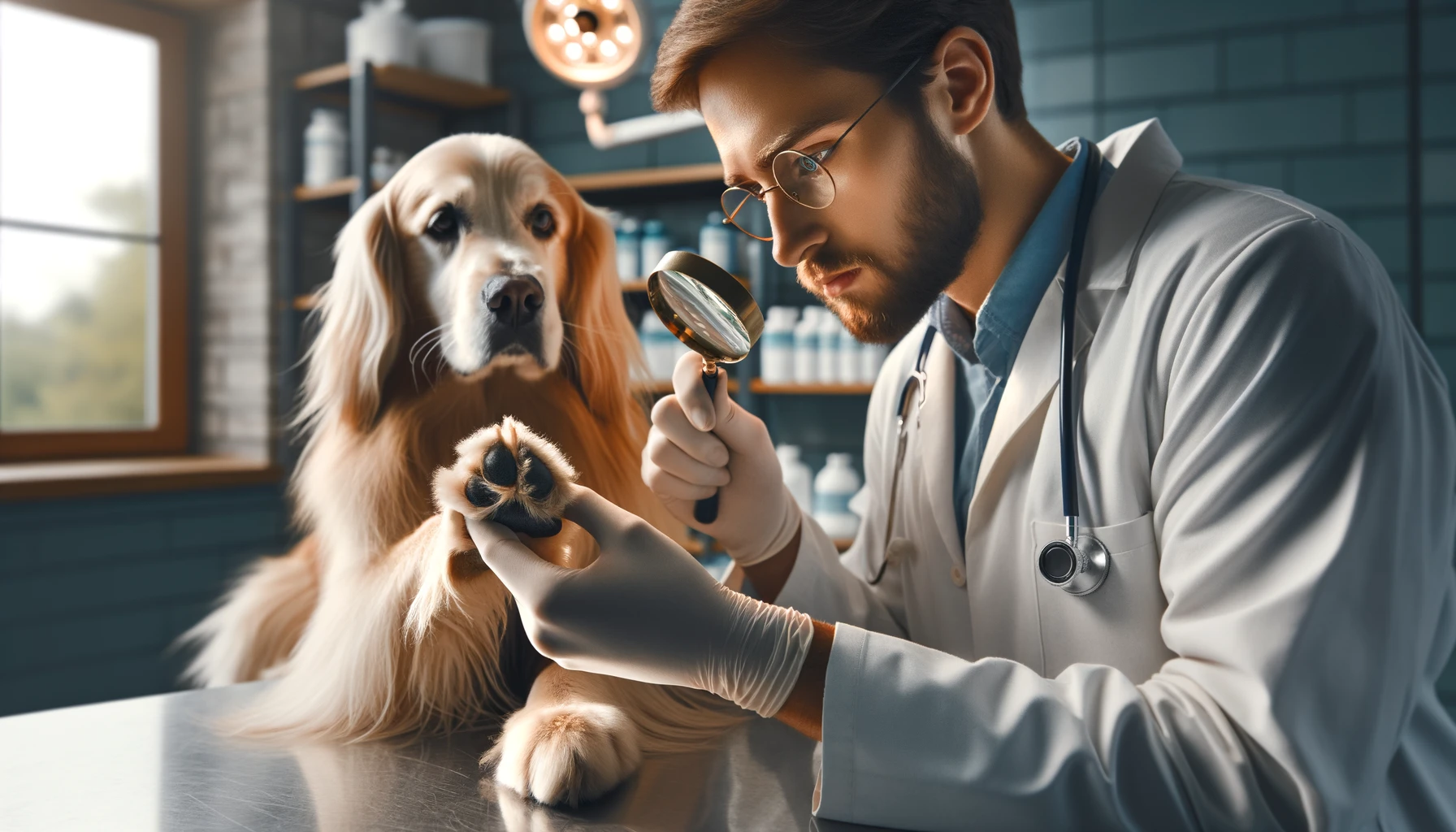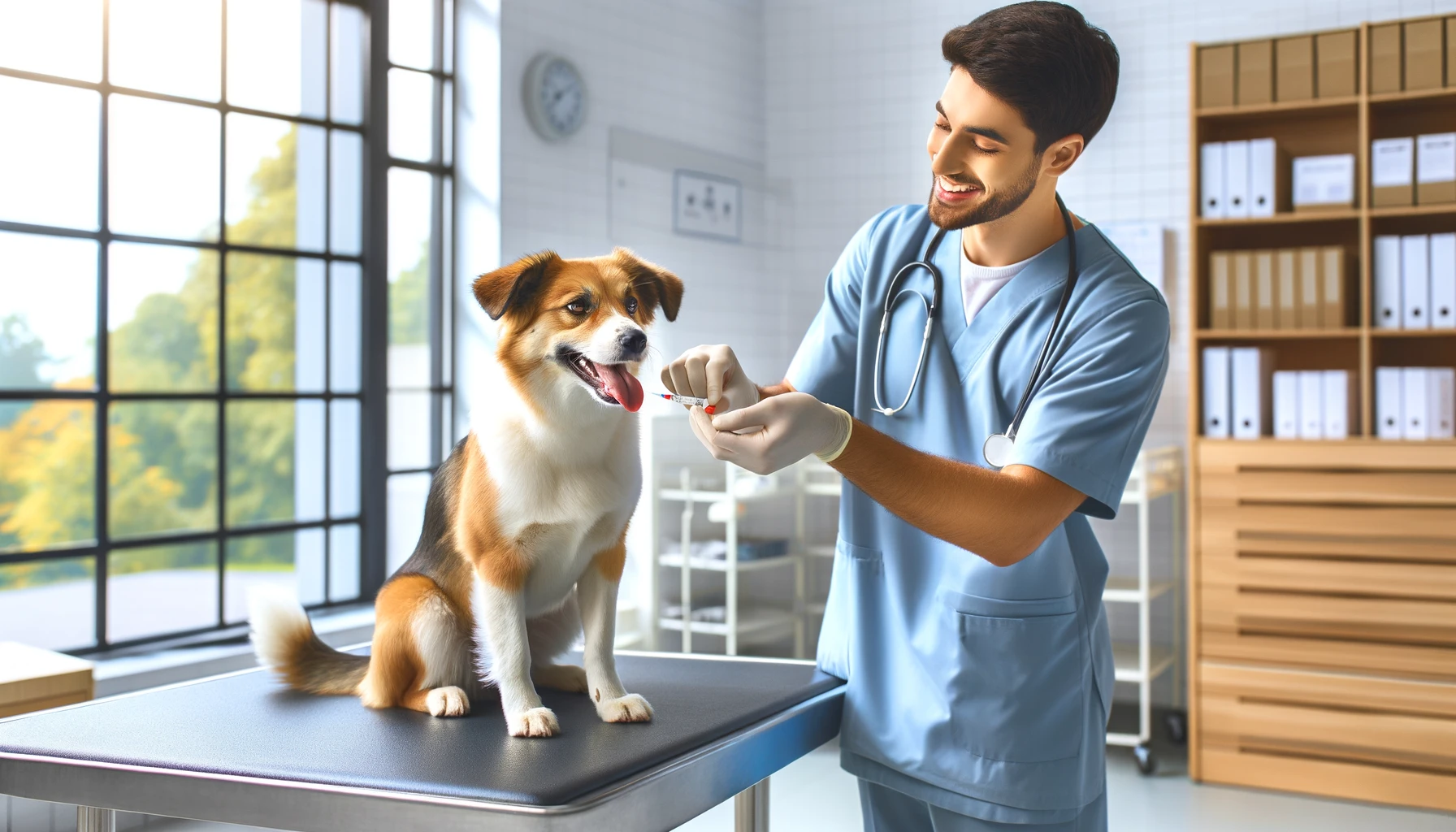Do you ever wonder why your dog seems so healthy? It's because they have certain signs that indicate good health.
From their physical appearance to their energy levels and appetite, there are many ways to tell if your furry friend is doing well.
Clear and bright eyes, a shiny coat, and strong teeth are all indicators of good health in dogs.
Additionally, regular bowel movements are a good sign.
Keep reading to learn more about these signs and what they mean for your pup's well-being.
Key Takeaways
- Regular exercise helps maintain a healthy weight and overall fitness level in dogs.
- Energy levels can be a good indicator of a dog's overall well-being.
- Consistent eating habits and healthy stools are signs of good health in dogs.
- Clear and bright eyes indicate good health in dogs.
Physical Appearance
When assessing your dog's overall health, it's important to pay attention to their physical appearance. One key aspect to consider is their exercise routine. Regular exercise is crucial for maintaining a healthy weight and overall fitness level in dogs. It helps them burn off excess energy, maintain strong muscles and joints, and prevent obesity-related health issues. Dogs with a consistent exercise routine tend to have better cardiovascular health, improved metabolism, and increased mental stimulation.
Another important factor to evaluate in your dog's physical appearance is their muscle tone. Good muscle tone indicates that your dog is in good shape and has the strength to perform daily activities. It's a sign of overall fitness and proper nutrition. Dogs with well-developed muscles are less prone to injuries and have better physical endurance. They also have a more defined body shape and appearance.
To ensure your dog has good muscle tone, incorporate regular strength-building exercises into their routine. Activities such as fetch, tug-of-war, and agility training can help strengthen their muscles. Additionally, providing a balanced diet with the right amount of protein can support muscle development.
Energy Levels
To assess your dog's good health, pay attention to their energy levels throughout the day. Energy levels can be a good indicator of your dog's overall well-being. Dogs that are in good health tend to have consistent and appropriate energy levels for their age, breed, and size.
It's important to provide your dog with regular exercise to ensure that their energy levels are balanced. Different breeds have different exercise requirements, so be sure to research and understand your specific dog's needs. Regular walks, playtime, and other physical activities can help keep your dog's energy levels in check.
In addition to physical exercise, mental stimulation is also crucial for maintaining good energy levels in dogs. Mental stimulation can come in various forms, such as puzzle toys, training sessions, and interactive games. These activities help keep your dog's mind engaged and prevent boredom, which can often manifest as excessive or restless energy.
It is important to note that energy levels can vary throughout the day. Dogs may have bursts of high energy followed by periods of rest. This is normal as long as it aligns with their typical routine. However, if you notice a sudden and significant decrease or increase in your dog's energy levels, it may be a sign of an underlying health issue. In such cases, it's recommended to consult with a veterinarian to rule out any potential medical concerns.
Appetite and Digestion
When it comes to your dog's appetite and digestion, two important signs of good health are consistent eating habits and healthy stools. A dog with a healthy appetite will consistently eat their meals and show enthusiasm for food.
Additionally, their stools should be well-formed, firm, and easy to pick up. Monitoring these aspects of your dog's appetite and digestion can help ensure they're maintaining good health.
Consistent Eating Habits
Your dog's consistent eating habits, including their appetite and digestion, are essential indicators of their good health. Maintaining a healthy weight is crucial for your dog's overall well-being. If your dog has a consistent and healthy appetite, it's a positive sign that they're getting the necessary nutrients to thrive.
On the other hand, a loss of appetite could be a sign of an underlying health issue and should be addressed by a veterinarian. Additionally, proper digestion is important for your dog's overall health. If your dog has regular bowel movements and shows no signs of discomfort or digestive issues, it's a good indication that their digestive system is functioning properly.
Adequate hydration levels are also important for your dog's well-being, so make sure they have access to clean, fresh water at all times. By monitoring your dog's consistent eating habits, you can ensure their good health and promptly address any potential concerns.
Healthy Stools
Maintaining healthy stools is a key indicator of your dog's good health. Regular exercise and proper hydration levels play a crucial role in promoting healthy digestion and ensuring your dog's stools are in optimal condition.
Regular exercise helps stimulate your dog's gastrointestinal system, promoting efficient digestion and absorption of nutrients. It also aids in preventing constipation, which can lead to hard and dry stools. Additionally, exercise helps regulate bowel movements, ensuring your dog's stools are consistent and well-formed.
Proper hydration is equally important. Sufficient water intake keeps your dog's digestive system hydrated, allowing for smooth digestion and soft stools. Dehydration, on the other hand, can result in hard and difficult-to-pass stools.
Clear and Bright Eyes
One important sign of good health in your dog is having clear and bright eyes. Maintaining your dog's eye health is crucial to their overall well-being. Regular check-ups with your veterinarian play a vital role in ensuring the health of your dog's eyes.
During these visits, the vet will examine your dog's eyes for any signs of redness, discharge, cloudiness, or inflammation. They may also perform a tear test to evaluate the production and quality of tears. These check-ups are necessary to detect any potential eye problems early on, such as cataracts, glaucoma, or corneal ulcers.
In addition to regular check-ups, there are measures you can take at home to maintain your dog's eye health. Keep your dog's eyes clean by gently wiping away any discharge or debris with a damp cloth. Be cautious not to use any harsh chemicals or irritants. Also, make sure that your dog's environment is free from irritants such as dust, pollen, or smoke, which can cause eye irritation.
Shiny and Healthy Coat
To maintain a shiny and healthy coat for your dog, two key factors come into play: diet and nutrition, and regular grooming habits.
Providing your dog with a balanced and nutritious diet is essential for promoting a lustrous coat.
Additionally, regular grooming, such as brushing and bathing, helps to remove dirt, dead hair, and excess oils, allowing your dog's coat to shine.
Diet and Nutrition
Feeding your dog a balanced and nutritious diet is essential for maintaining a shiny and healthy coat. Just like humans, dogs require a variety of nutrients to support their overall health, including their skin and fur.
Providing your dog with balanced meals that meet their nutritional requirements is key. A diet rich in high-quality protein, such as lean meats or fish, can promote a healthy coat by providing the building blocks for strong and shiny hair.
Additionally, essential fatty acids, like omega-3 and omega-6, play a crucial role in skin and coat health. These can be found in sources like fish oil or flaxseed.
Regular Grooming Habits
To maintain a shiny and healthy coat, it's important for you to regularly groom your dog. Grooming techniques such as brushing, bathing, and trimming can have numerous benefits for your furry friend.
Regular brushing helps remove loose hair, prevents matting, and stimulates the production of natural oils that keep the coat shiny.
Bathing your dog removes dirt, debris, and odors, while also promoting healthy skin.
Trimming your dog's nails prevents them from becoming too long and causing discomfort or injury.
Regular grooming sessions also provide an opportunity to check for any skin issues, parasites, or abnormalities that may require veterinary attention.
Strong and Clean Teeth
Keeping your dog's teeth strong and clean is essential for their overall health and well-being. Good dental care and oral hygiene practices can prevent dental diseases and promote a healthier life for your furry friend.
Regular brushing is the foundation of maintaining strong and clean teeth. Using a soft-bristled toothbrush and dog-friendly toothpaste, gently brush your dog's teeth at least two to three times a week. This helps remove plaque and prevents tartar buildup, reducing the risk of gum disease and tooth decay.
In addition to brushing, providing your dog with appropriate chew toys can also contribute to their dental health. Chew toys help remove plaque and tartar, exercise the jaw muscles, and reduce the risk of tooth fractures.
Routine dental check-ups are crucial for detecting and addressing any potential dental issues early on. Your veterinarian can perform a thorough examination, clean your dog's teeth professionally, and provide necessary treatments such as dental scaling or extractions if needed.
Remember to avoid feeding your dog sugary or sticky treats, as they can contribute to dental problems. Instead, opt for dental-friendly treats or incorporate dental chews into their daily routine.
Regular Bowel Movements
Maintaining a balanced diet and regular exercise routine can help ensure that your dog has regular bowel movements. Stool consistency and digestive regularity are important indicators of your dog's overall health. When your dog's bowel movements are regular, it means that their digestive system is functioning properly and efficiently.
One key factor in promoting regular bowel movements is feeding your dog a high-quality diet. Make sure to choose a dog food that's rich in fiber and easily digestible ingredients. Fiber helps to add bulk to the stool and promote regularity. Additionally, providing your dog with plenty of fresh water throughout the day can also help maintain proper hydration and aid in digestion.
Exercise is another important aspect of maintaining regular bowel movements. Regular physical activity stimulates the muscles in the digestive tract, promoting healthy bowel movements. Make sure to take your dog for daily walks or engage in other forms of exercise to keep their digestive system active and functioning optimally.
If you notice any changes in your dog's stool consistency or frequency, it may be a sign of an underlying health issue. It's important to consult with your veterinarian if you have any concerns about your dog's digestive regularity. They can provide guidance and recommend any necessary changes to your dog's diet or exercise routine to promote regular bowel movements and overall good health.
Frequently Asked Questions
How Often Should I Bathe My Dog to Maintain a Healthy Coat?
To maintain a healthy coat, bathe your dog regularly. Frequency depends on factors like breed, activity level, and coat type. Generally, bathing once every 1-3 months is sufficient. Regular grooming, including brushing, can also help maintain coat health.
What Are Some Common Signs of Dental Issues in Dogs?
Regular dental hygiene is crucial for your dog's overall health. Signs of dental issues include bad breath, swollen gums, tartar buildup, and difficulty eating. Proper dog dental care can help prevent these problems and keep your furry friend healthy.
Can a Dog Be Considered Healthy if It Has Occasional Diarrhea?
Occasional diarrhea in dogs can have various causes, such as dietary changes or infections. While it may not indicate good health, a healthy digestive system can handle occasional bouts of diarrhea without major concerns.
What Are Some Indicators of Good Mental Health in Dogs?
Positive behavior and a happy demeanor are indicators of good mental health in dogs. They may include playful interactions, relaxed body language, and a balanced emotional state.
Are There Any Supplements I Can Give My Dog to Improve Their Overall Health?
You can give your dog supplements to improve their overall health. However, it's important to research their effectiveness and potential side effects. Consult with your vet to ensure the supplements are safe and beneficial for your dog.
Conclusion
Overall, signs of good health in dogs include:
- A physical appearance that's free from any noticeable abnormalities
- High energy levels
- A healthy appetite and digestion
- Clear and bright eyes
- A shiny and healthy coat
- Strong and clean teeth
- Regular bowel movements
These indicators demonstrate that your dog is in good physical condition. It is important to support their ongoing well-being by scheduling regular check-ups with a veterinarian.






